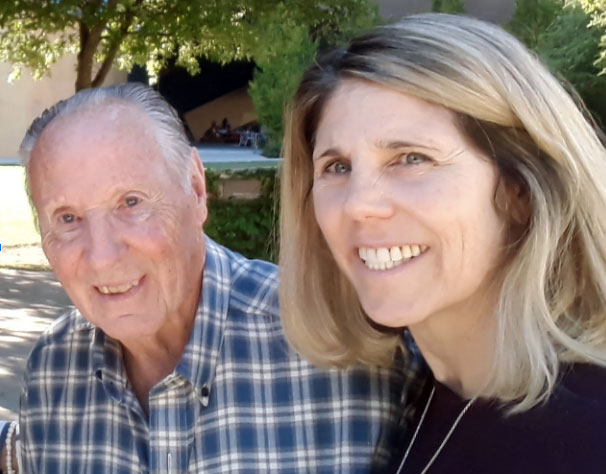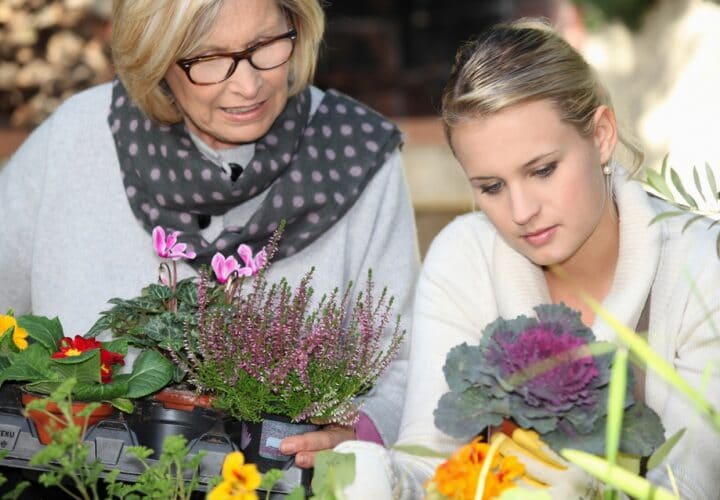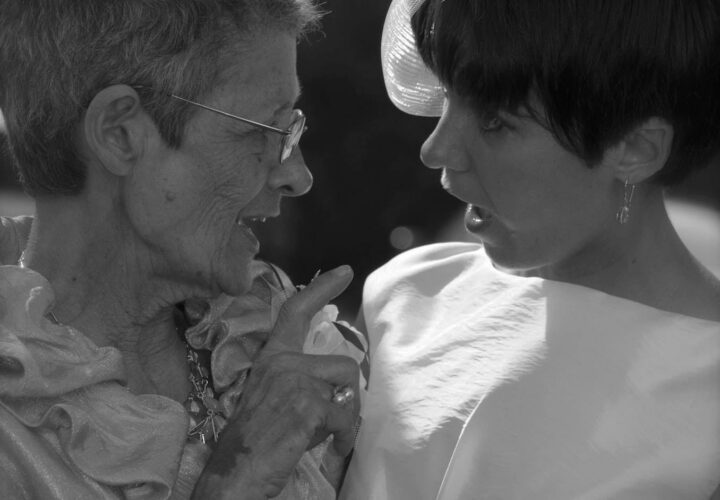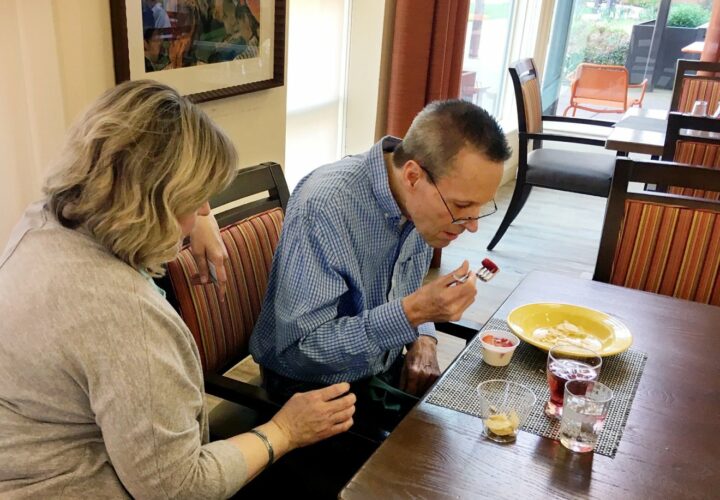“You realize that it’s not the journey that you chose, but it’s the journey that you got. How are you going to make the best of it?”
When Francis Lam’s adult day care center shuttered during the coronavirus outbreak, her daughter Phyllis Lam fretted over setting up a host of activities to keep her active.
Phyllis later realized that her mother, who is 90 with dementia, was content with just one to three daily activities. She didn’t need to overwork herself, she thought. To relieve some of her stress, Phyllis, owner of a garden store, would walk with her mother outdoors and tend to her home garden.
“You just have to do the best you can,” Phyllis told Being Patient.
As adult day care centers have closed during the coronavirus shutdown, family caregivers are caring for loved ones with dementia around the clock, often worrying about their lack of physical and social stimulation among many other concerns.
More than eight in 10 caregivers of loved ones with Alzheimer’s say they are experiencing higher stress levels due to coronavirus, according to a recent survey by nonprofit advocacy group UsAgainstAlzheimer’s. Nearly three quarters of those taking care of people with Alzheimer’s at home are unsure what would happen to their loved one if they got sick with coronavirus.
“Now that burden is on the caregiver,” said Maria Nicolacoudis, executive director of adult day care center Hearts and Minds Activity Center. “They’re the ones who have to assist with toileting, making sure the person is being fed properly on top of what they already do: getting them up and out of bed, dressed and showered which can be very challenging.”
Even before the pandemic, research shows that dementia caregivers have higher levels of stress and depression then other types of caregivers, likely because of the progressive nature of Alzheimer’s, which renders those living with it incapable looking after themselves.
“Loneliness is very common among caregivers,” said Katherine Possin, a professor in the Department of Neurology at University California, San Francisco. “They’re often home with their loved ones with dementia 24/7. Now with the pandemic, it’s adding a huge level of isolation. This is really hard on caregivers.”
Create a Routine
While caring for a loved one with dementia may feel overwhelming, especially during the pandemic, creating a routine can help.
When social distancing and shelter-in-place protocols went into effect, Al Cuthbert, who is 87 with dementia, could no longer spend time at his adult day care program. Instead, he has been relying full time on the care of his son-in-law and daughter Lynne Jennings — who is also working from home.
At 10:30 a.m., Cuthbert attends the virtual activities of his adult day care program. At 12:00pm, he tunes in for virtual mass service.
“I like the music. We do exercise on a chair and it’s good to see the people from our group [at the adult day care center],” Cuthbert said.
Then, Cuthbert watches the news and by 1:30 p.m., he joins the family for lunch. When Jennings finishes work in the afternoon, she walks with her father around the neighborhood of Santa Clara, California — an activity they both enjoy.
“Having him in a consistent environment with a schedule has been absolutely critical,” Jennings said.
As Cuthbert grows accustomed to his routine, he’s beginning to juggle his daily activities on his own, easing Jennings’ workload, and helping to create predictability and structure for both of them, which in hectic times can be a source of relief in itself.
Ask For Help
According to author and psychologist Dale Atkins, caregivers should assess what they need during the pandemic and ask for help from those who can best assist them.
Some may feel they have no one to ask for help — but looking around they may find many other dementia caregivers who understand their experience. The Alzheimer’s Association has launched virtual support groups and lessons for caregivers and people with dementia. Caregivers can also call Alzheimer’s Association’s 24/7 health line at 800-272-3900.
“We want people to know that they’re not alone in this journey,” said Claire Day, chief program officer of the Alzheimer’s Association Northern California and Northern Nevada Chapter.
Meanwhile, family and friends should reach out to caregivers: Small acts like delivering a meal, sending a funny video or a music mixtape can go a long way.
“The friends who stay around are really precious,” Atkins said.
Make Time For Yourself
According to Atkins, caregivers should take care of themselves and be mindful of the things they do each day — perhaps sleep a little longer or chat with a friend on the phone. Listen to a podcast. As several Being Patient readers commented on Facebook, even going for a drive on a beautiful road and listening to music can serve as a moment to oneself.
Even your daily routines, like taking a shower, can become a much-needed escape, however brief, according to Atkins. “Be mindful in that moment — that is self-care. When you put body lotion on, give yourself that moment — that 30 seconds — to be in the moment,” she said. “Caregivers don’t do these things. And these tiny little things really do help because over time, they accumulate a sense that ‘I’m important’ and ‘I’m valuable.’”
Atkins encourages caregivers to remember the times of happiness and to share those times with the person they’re taking care of. Tell stories, flip through photo albums, replay a favorite movie scene. Savor the moments of joy.
After all, bearing the burden of caregiving can be a journey of growth. Research shows that caregivers may become more patient, caring and sensitive to people’s needs. Some see it as a spiritual journey, enabling them to feel a higher power.
Atkins says caregivers become much more appreciative and grateful for what they have. Many experience humility and a deep connection with themselves and the person they’re caring for even though they can get frustrated, upset and lonely.
“It’s a journey. And you’re open to the journey,” Atkins said. “You realize that it’s not the journey that you chose, but it’s the journey that you got. How are you going to make the best of it?”





